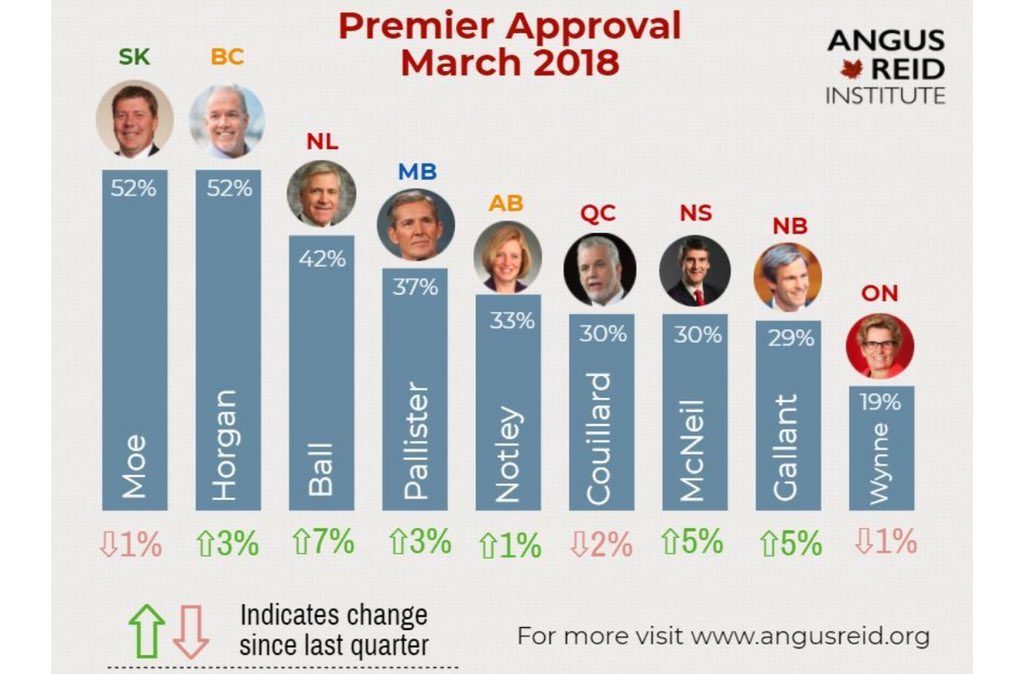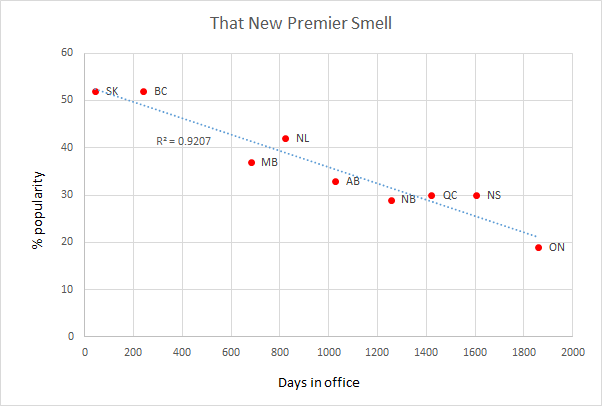You may have seen this graphic across the #CDNPoli Social Media this week:

It reinforces whatever political biases you bring into it: Horgan is doing OK; Wynne is a wreck; PEI doesn’t matter. But I took something else out of it, and had to draw my own graph to demonstrate it:

Politics is a hell of a business.
For the rest of us who slept through Statistics 101, an R of .92 is a pretty high correlation, so I can definitively say popularity as a Premier in Canada correlates negatively with time in office. Any Premier above that trend line is doing better than average, any premier below the line is doing worse than average. Arguably, Pallister is doing worse than McNeil on average, but you know which I would rather be going into re-election.
Because in politics, it doesn’t seem to matter if you are above or below the line here. The only lesson to be learned from this graph is that the best you can hope for in Provincial Politics in Canada is to get things done before that New Premier Smell wears off. As years in office accumulate, any successes or victories are quickly weighed down by a legacy of being to blame for everything that may have gone wrong. Inevitably some of that is your fault (no one is perfect) and some is beyond your control, but in politics at the highest level, it simply doesn’t matter.
The only good way out of politics is to recognize when the door has been opened for you, and get out. Problem is, that kind of self-recognition is the first thing to be eroded by electoral success and access to power. Entering politics in the first place requires hubris, time in politics increases hubris, getting out requires absence of hubris. You can see the problem here.
I’m not sure how this plays out at the Municipal level, but I am just going to leave this post here, and hopefully someone will point it out to me when I am considering my 6th term for Council.